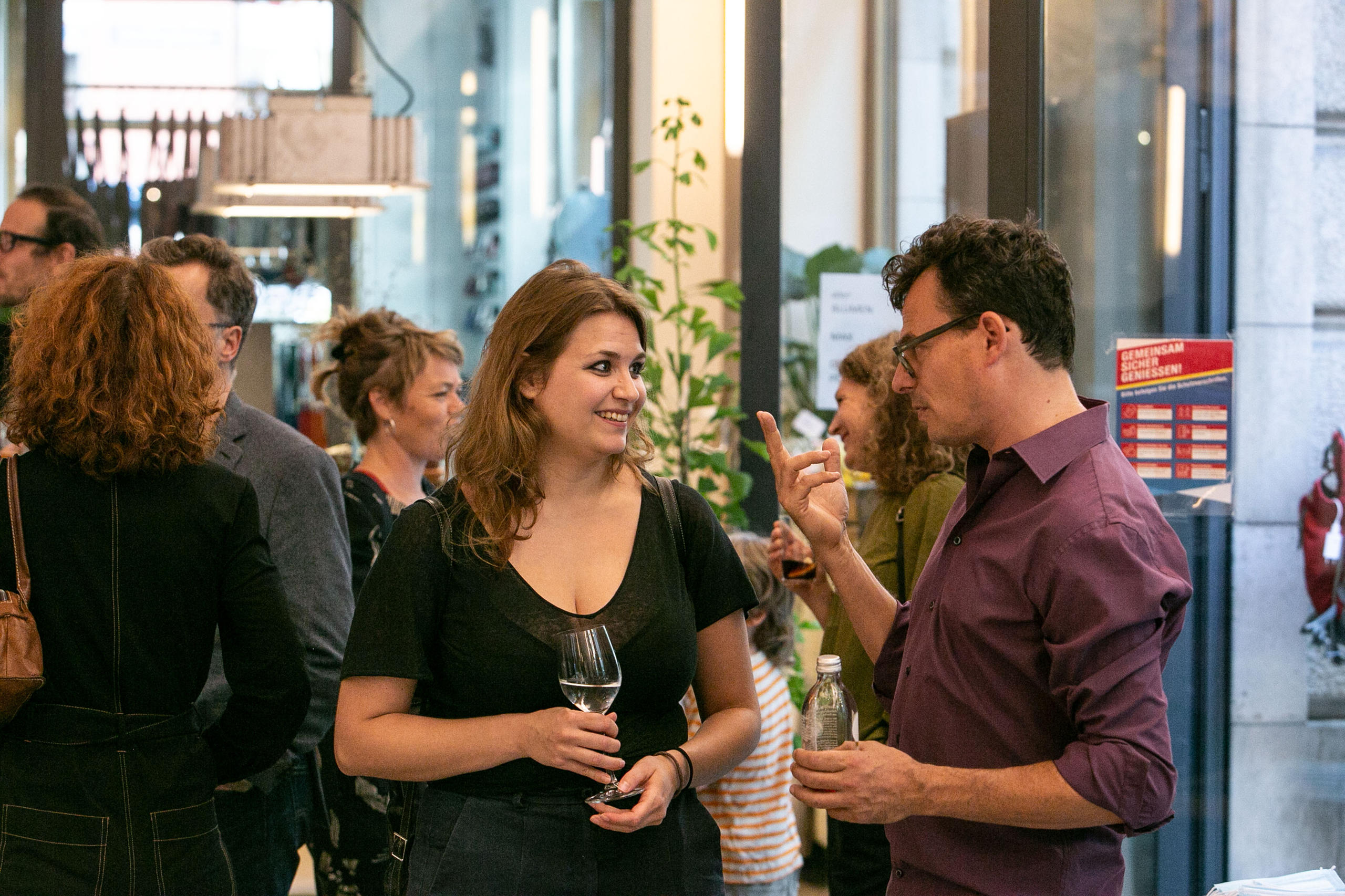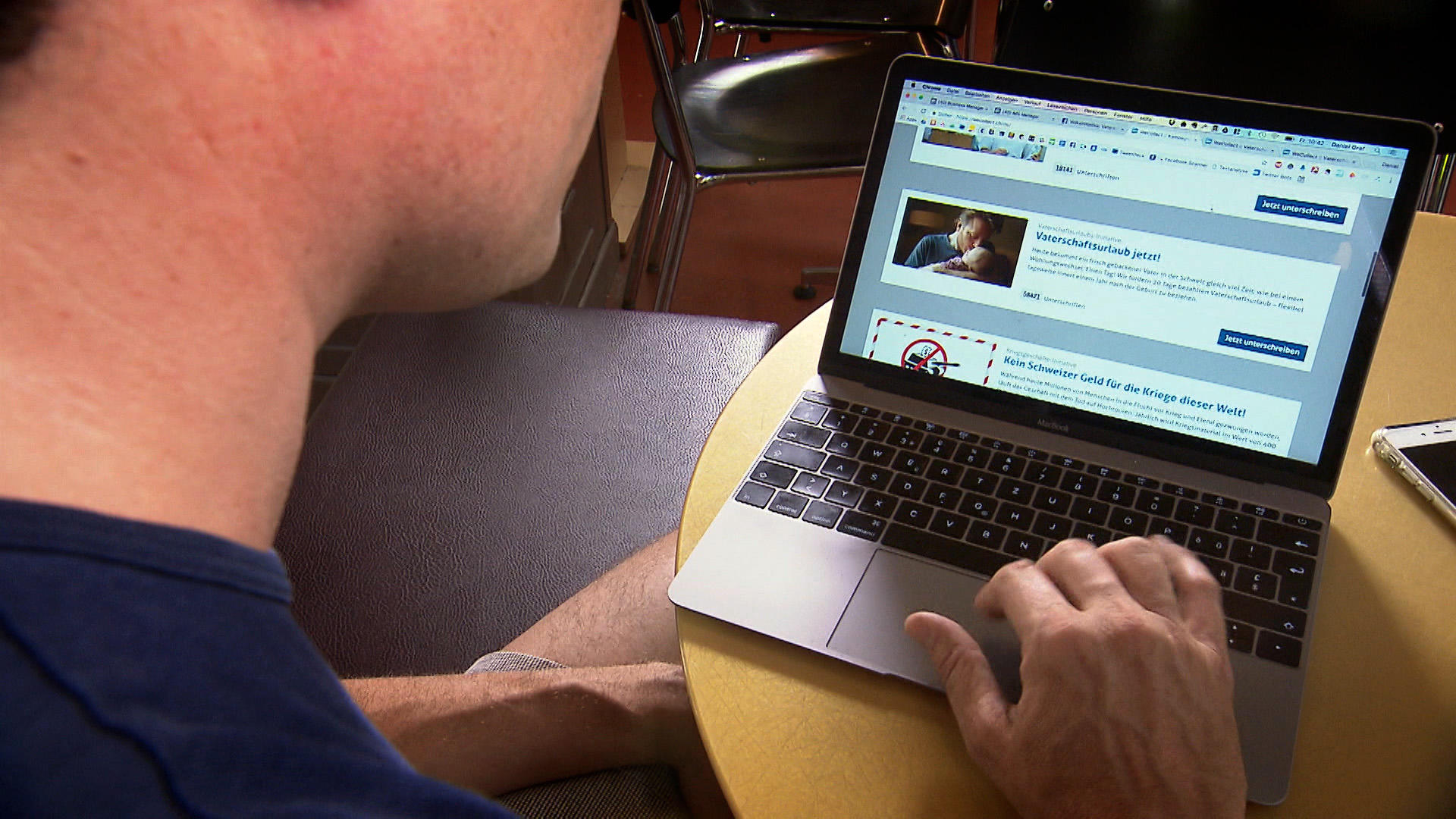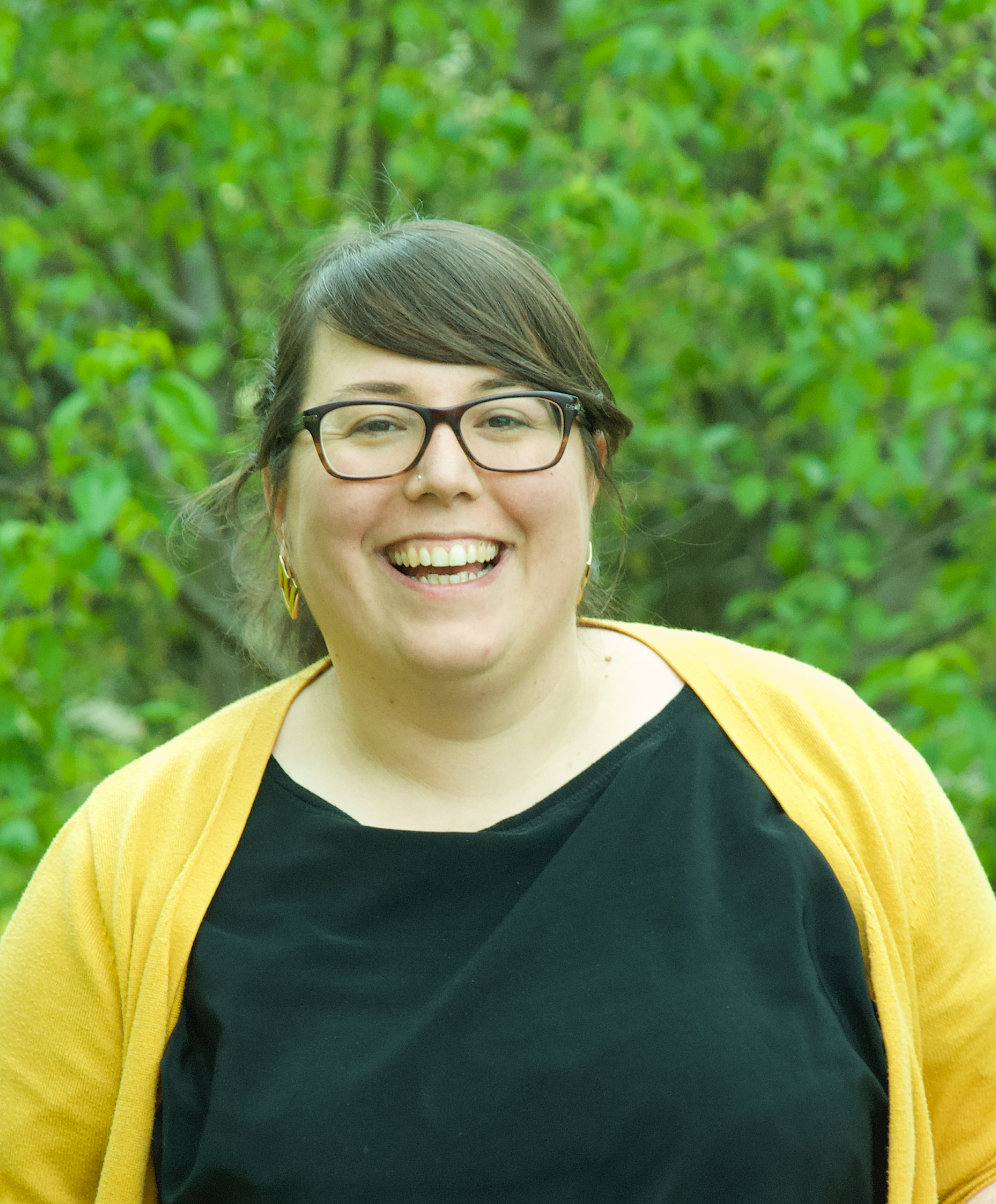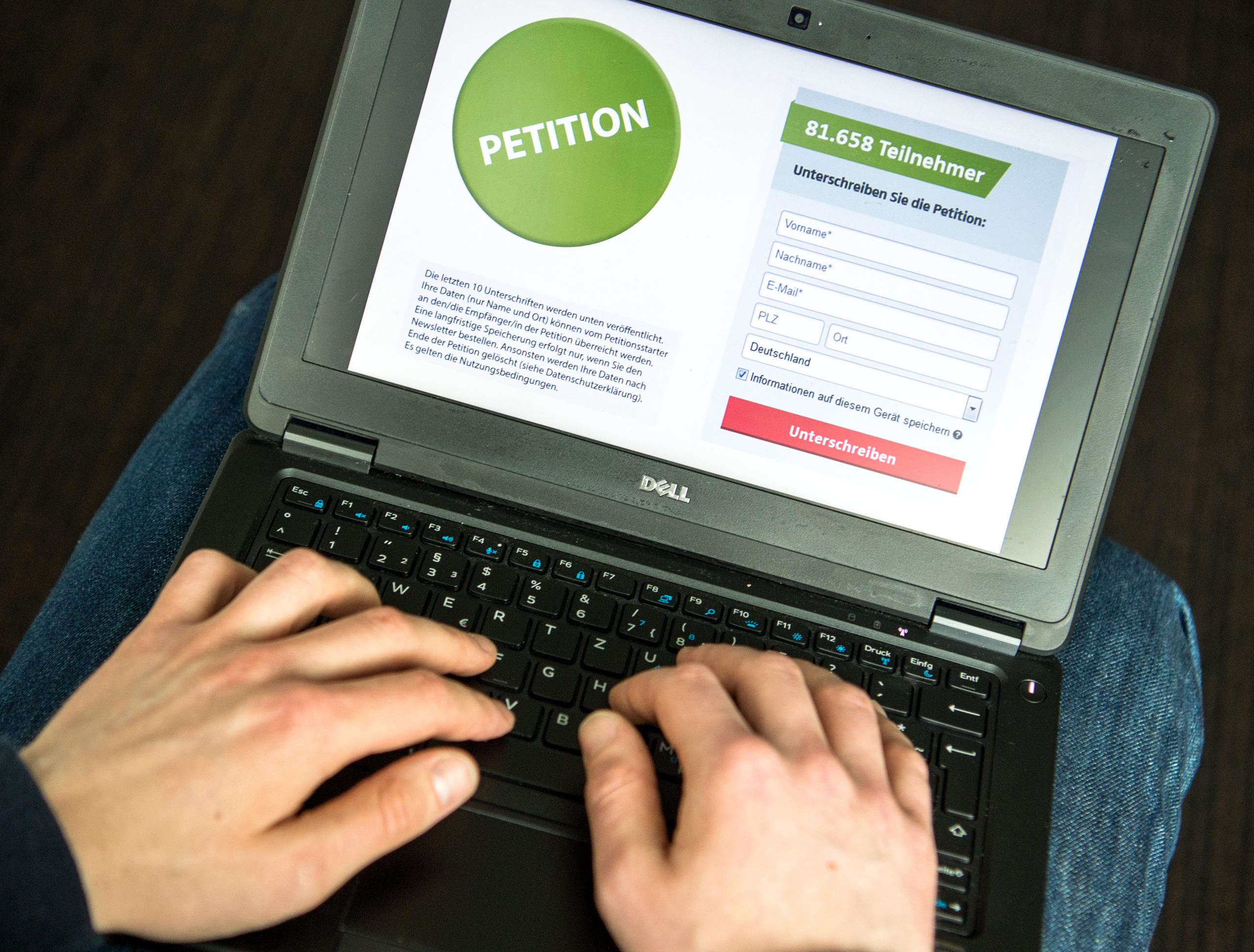Swiss online democracy platform democratises itself

WeCollect, the online platform for citizen initiatives, is widening its scope to also work with regional and local campaigns. Whether it will also start casting its net wider than left-wing proposals remains to be seen.
To date, the platform has been hailed as a success in the rather slow-moving world of digital democracy in Switzerland. Since its foundation by activist Daniel Graf in 2016, WeCollectExternal link has helped 30 citizen initiatives and proposals notch up some 400,000 online-sourced signatures.
Using a database of around 75,000 email addresses, WeCollect helps initiatives garner online support to make real-world action possible; if in support of an idea, internet users can print out a form, sign it, and post if off. (In Switzerland, at least 100,000 physical signatures are needed to bring a people’s initiative to vote; 50,000 are needed for a referendum.)

More
Swiss signature-gathering platform marks debut year
However, the platform has also come in for some criticism.
For example: for a democracy incubator, WeCollect was rather limited in its structure. Founder Graf had essentially been running it as a one-man show. Deciding alone which committees and citizens could have access to the platform for their campaigns, Graf’s choices consisted almost exclusively of demands from left-wing and Green camps.
At the end of June, the announcement that the platform would be broadened thus came as a logical step: WeCollect will now come under the auspices of the newly established Foundation for Direct DemocracyExternal link. Graf is still present, as president of the foundation’s board. But now five other board members decide who can use WeCollect to gather digital signatures.
“The decision-making has been democratised,” says Sophie Fürst, a member of the board.

Crafting democracy
The new structure also doesn’t affect WeCollect’s core focus of using digital updates to develop analogue direct democracy.
“We support projects in which people work to develop democracy, because democracy needs updating in Switzerland,” Fürst says. She is also general manager of the Swiss Climate Change Association, which launched an initiative – supported by WeCollect – about melting glaciers and climate change that was submitted to authorities last year with over 113,000 signatures.
The campaign for her own initiative has served as a roadmap, Fürst says, especially when it comes to connecting offline and online work.
Collecting signatures on the street – the classic direct democracy activity – offers many a clear way to get involved in working towards a concrete goal. But there is now also a need to link such work to digital campaigning and the digital collection of signatures, since the online world now plays such a central role in contemporary life, she says.
Having helped notch up some 400,000 signatures for 30 proposals, and boasting an address book of 75,000 supporters, WeCollect has become an important player in Switzerland over the past four years.
Meanwhile, the independent, charitable Foundation for Direct Democracy has put crowdfunding at the forefront of its strategy. The foundation’s capital of CHF50,000 was raised from small donors, of which 500 have registered since June.
“Macht: direkte DemokratieExternal link” (Power and Direct Democracy), a collection of texts by politicians, academics and cultural figures on the future of direct democracy, was published to mark the foundation’s launch.
Non-negotiable values
The foundation also remains true to WeCollect’s fundamental philosophy: alongside updating democracy, its mission is to strengthen civil society on the basis of three principles – human rights, sustainability and equality.
Does increasing the number of decision-makers also mean WeCollect will broaden its scope to encompass initiatives from the political centre? Fürst says she doesn’t like to think in such terms as right and left. “The most important thing for me is that there is a broad range of projects and that people who don’t feel connected to any political party can become engaged in them.”
The glacier initiative could serve as a role model here too, because its supporters range from Green Party climate activists to politicians from centrist parties.
In cantons and municipalities
Whether the democratisation of the democratisation platform will lead to broader content remains to be seen. But on another level, Fürst and her colleagues are definitely breaking new ground: from September, WeCollect will extend its support to initiatives and referendums on a cantonal and communal level. So far, the platform had exclusively served national campaigns.
The goal is to bring a new impetus to direct democracy at the lower levels of government, Fürst says. “In local politics especially, many opportunities have been missed in the past years and decades. We have the ambitious aim of making democracy palatable again by showing how politics can be effective and rewarding.”
For example, many people might not have the courage to stand up and present their views in front of a municipal assembly, where debates and decisions take place on the local level. “We need new instruments and new ways to lower barriers for people to participate,” says Fürst. “The foundation sees itself as an incubator to develop these new opportunities.”
The appointment of Fürst, a self-described bridge-builder, boosts the foundation’s networking capacity. “We want to advise individuals who have an idea for a people’s initiative and bring them together with activists who possess extensive knowledge of direct-democracy instruments,” she says.
“WeCollect can achieve a lot. But the platform alone is not enough to launch a people’s initiative.”
Adapted from German by Catherine Hickley and Domhnall O’Sullivan
Translated from German by Catherine Hickley, swissinfo.ch

In compliance with the JTI standards
More: SWI swissinfo.ch certified by the Journalism Trust Initiative













You can find an overview of ongoing debates with our journalists here . Please join us!
If you want to start a conversation about a topic raised in this article or want to report factual errors, email us at english@swissinfo.ch.